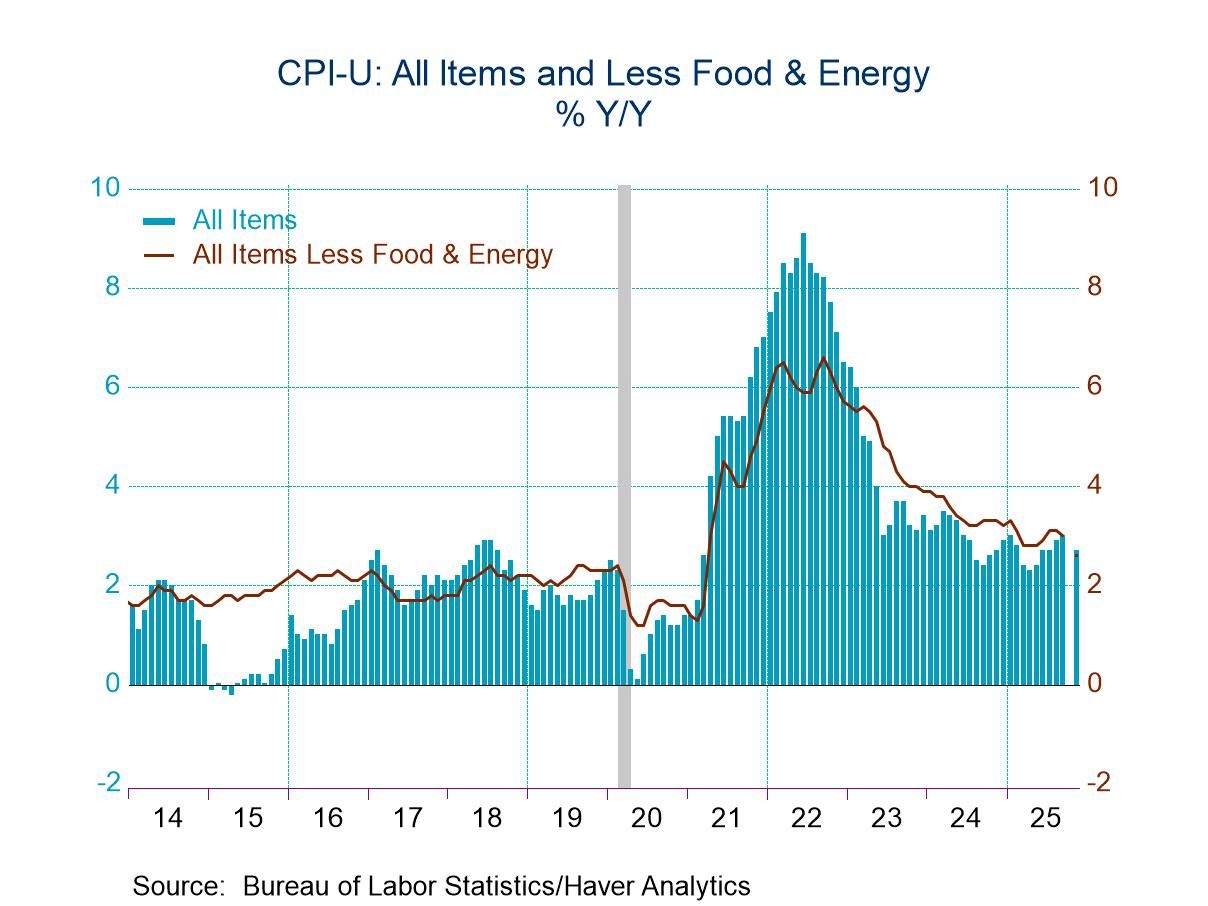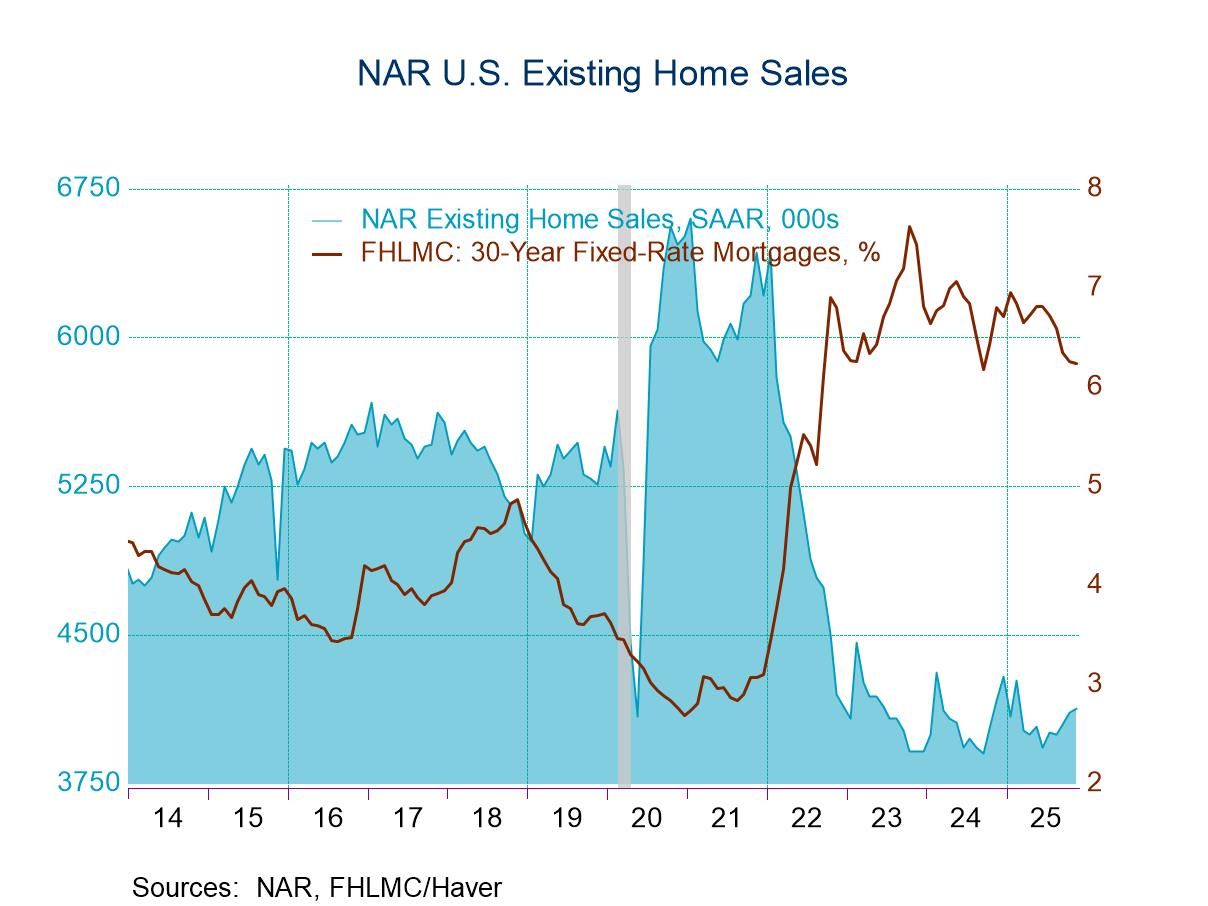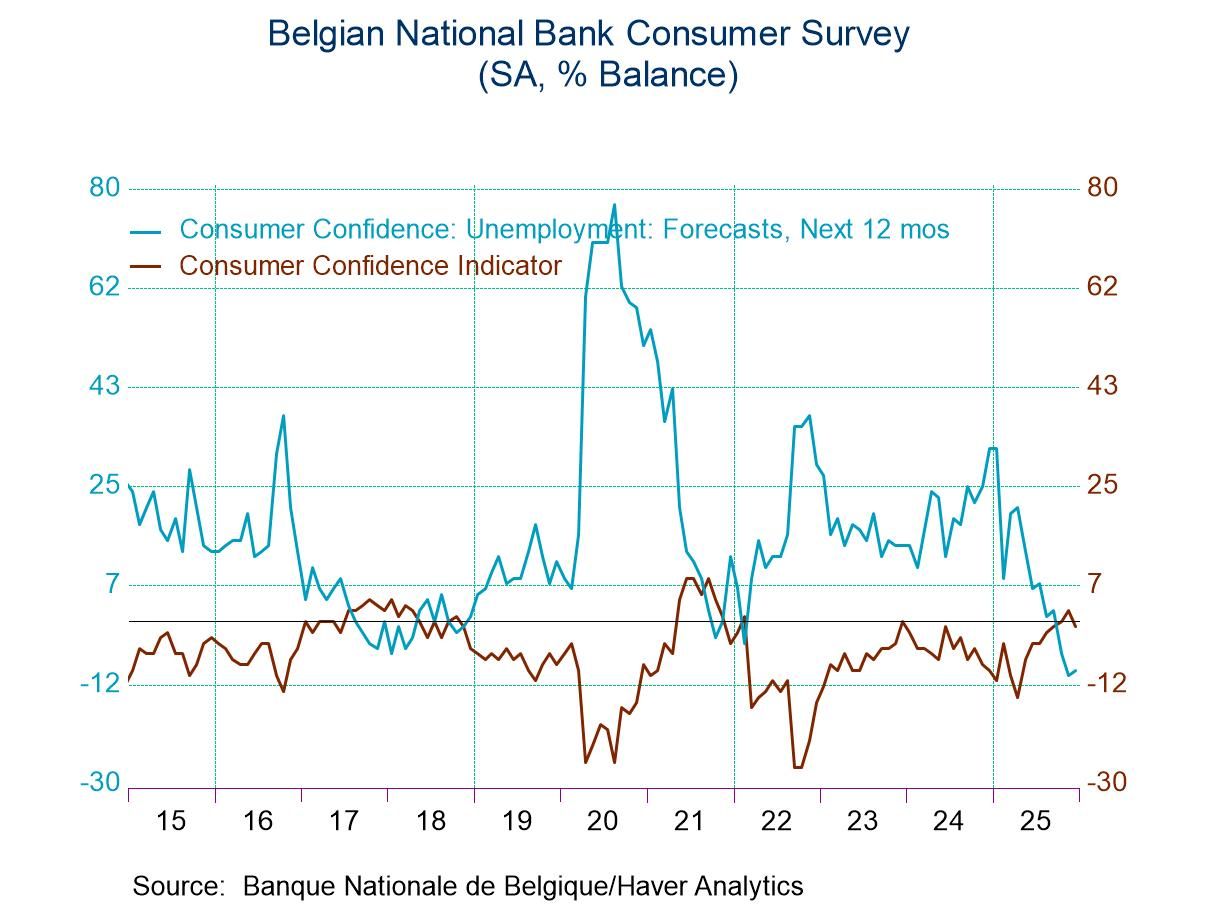U.S. Trade Deficit Narrows Marginally in February
by:Tom Moeller
|in:Economy in Brief
Summary
- Consumer goods exports firm.
- Capital goods imports fall.
- Petroleum imports soar as prices climb.


The U.S. trade deficit in goods and services eased to $89.19 billion during February from $89.23 billion in January, revised from $89.69 billion. A deficit of $88.6 billion had been expected in the Action Economics Forecast Survey. Exports increased 1.8% (19.9% y/y) after falling 1.7% in January. Imports rose 1.3% (23.1% y/y) after increasing 1.1% in January.
The trade deficit in goods eased to $106.35 billion in February after expanding to a record $107.36 billion in January. It compared to a $106.59 billion deficit in the advance report issued last week. Exports of goods rose 1.7% (21.3% y/y). Nonauto consumer goods exports increased 6.7% (34.4% y/y) in February. Exports of foods, feeds & beverages increased 4.6% (6.9% y/y). Industrial supplies & materials exports improved 3.0% (31.2% y/y). Working lower, auto exports weakened 2.4% (+2.6% y/y) and capital goods exports fell 1.5% (+16.8% y/y).
Imports of goods increased 0.6% in February (21.4% y/y). Industrial supplies & materials imports increased 5.5% (40.3% y/y) as oil prices increased. Capital goods imports improved 1.4% (16.5% y/y). Nonauto consumer goods imports gained 0.7% (20.2% y/y). To the downside, auto imports declined 9.9% (+4.0% y/y) as foods, feeds & beverage imports weakened 3.0% (+26.1% y/y).
Petroleum imports rose 18.6% (75.6% y/y) in February. The rise occurred as the price of crude oil increased to an average $76.37 per barrel from $69.22. Nonpetroleum imports slipped 0.8% (+17.9% y/y).
The real (adjusted for price changes) trade deficit in goods narrowed to $116.28 billion from a record $117.89 billion (chained 2012 dollars) in January. Real exports of goods fell 0.8% (+5.8% y/y) while real imports of goods declined 1.0% (+10.0% y/y).
The surplus of trade in services declined to $18.3 billion in February. The surplus remained down from a high of $26.7 billion in January 2018. The value of services exports rose 2.0% (16.2% y/y) as travel exports increased 17.8% (90.3% y/y). Service imports rose 5.0% (32.3% y/y) in February including an 8.2% rise (170.0% y/y) in travel imports.
The trade deficit with China deepened to a seasonally adjusted record $41.2 billion in February. Exports rose 1.6% (23.1% y/y) while imports rose 17.6% (13.7% y/y). The trade deficit with Japan lessened to $5.1 billion as exports increased 14.1% (28.1% y/y) and imports fell 8.6% (+21.8% y/y). The goods trade deficit with the European Union eased to $17.0 billion. Exports rose 4.4% (28.1% y/y) and imports rose 0.1% (7.6% y/y).
The international trade data, including relevant data on oil prices, can be found in Haver's USECON database. Detailed figures on international trade are available in the USINT database. The expectations figures are from the Action Economics Forecast Survey in AS1REPNA.
Variation in the Inflation Experiences of Households from Fed Governor Lael Brainard can be found here.


Tom Moeller
AuthorMore in Author Profile »Prior to joining Haver Analytics in 2000, Mr. Moeller worked as the Economist at Chancellor Capital Management from 1985 to 1999. There, he developed comprehensive economic forecasts and interpreted economic data for equity and fixed income portfolio managers. Also at Chancellor, Mr. Moeller worked as an equity analyst and was responsible for researching and rating companies in the economically sensitive automobile and housing industries for investment in Chancellor’s equity portfolio. Prior to joining Chancellor, Mr. Moeller was an Economist at Citibank from 1979 to 1984. He also analyzed pricing behavior in the metals industry for the Council on Wage and Price Stability in Washington, D.C. In 1999, Mr. Moeller received the award for most accurate forecast from the Forecasters' Club of New York. From 1990 to 1992 he was President of the New York Association for Business Economists. Mr. Moeller earned an M.B.A. in Finance from Fordham University, where he graduated in 1987. He holds a Bachelor of Arts in Economics from George Washington University.






